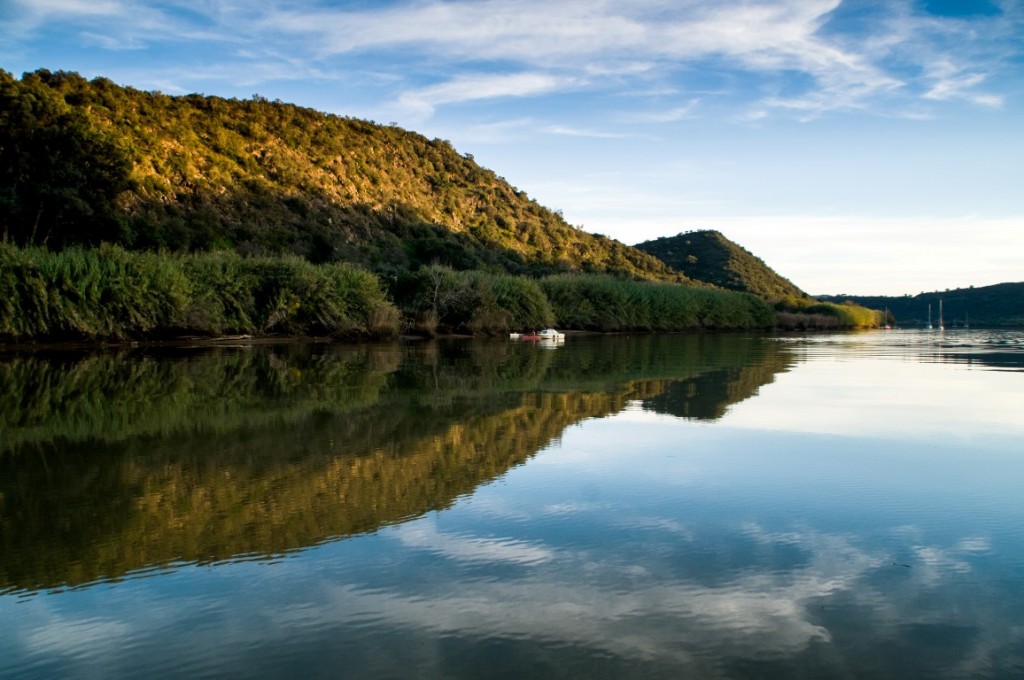The ANP|WWF (Associação Natureza Portugal|World Wide Fund For Nature) and WWF Spain consider that «water abstraction from the Guadiana River cannot be carried out, by Portugal or Spain, without both countries being coordinated with each other and without know the real availability of the river, especially in an area that suffers from scarcity», such as the Baixo Guadiana.
For this reason, the two associations appeal to the Portuguese and Spanish governments, «for there to be better coordination in the management of the waters shared by both countries, particularly in the final border section, and for them to legally establish, within the scope of the Albufeira Convention and the Basin Plans, the real ecological requirements of flows and the effective availability for water abstraction from the Guadiana River».
These were the «main messages» left last Friday, April 29, according to ANP|WWF, by several experts in the webinar Cross-border Cooperation, Uses and Water Scarcity in Baixo Guadiana.
This webinar was organized by ANP|WWF and WWF Spain, «in the current context of climate change and water scarcity that affects both countries».
“The protection and improvement of rivers, wetlands and aquifers in the Algarve and Huelva must be a priority in order to be able to reconcile environmental objectives with the socio-economic development of this cross-border region. Until this condition is fulfilled, the Guadiana and its estuary will continue to suffer the harmful consequences of the lack of coordination in the management of the waters shared by the two countries. By not ensuring compliance with an effective ecological flow regime in the estuary, we will be jeopardizing ecosystem services as important as the gestation and breeding of many fishing species, feeding on sediments from beaches on the coasts of the Algarve and Andalusia, or the survival of riparian galleries that protect us from floods and droughts», explained Afonso do Ó, ANP|WWF water and climate specialist.
The Guadiana River rises in the Ruidera lagoons in Spain, running for 810 km to its mouth, in the Atlantic Ocean, near Vila Real de Santo António.
The Guadiana river basin, of which 83% is located in Spain and 17% in Portugal, «is one of the basins with the greatest hydraulic regulation on the Peninsula, including some of the largest dams and reservoirs in Europe, such as La Serena or Alqueva. More than 80% of the water abstracted is destined for the agricultural sector, both in Portugal and in Spain», explains the ANP|WWF.
The association recalls that “under the Albufeira Convention, which regulates the use of water in the basins shared by the two countries, minimum quarterly and annual flow regimes were defined for each river crossing the border. However, this was not agreed at the place where the Guadiana becomes a border again – in Pomarão/Chança – which, under the terms of the Convention, should have taken place by 2002 to manage the environmental situation of the Guadiana Estuary».
On the contrary, says the ANP|WWF, “Spain is already extracting water from the Guadiana and is preparing to reinforce direct abstractions at the mouth of the Chança, to supply the intensive irrigation systems in Huelva. For its part, Portugal is preparing a new abstraction upstream of Pomarão to supply identical intensive irrigation systems in the Eastern Algarve».
Bearing this scenario in mind, both the ANP|WWF and WWF Spain defend «the need for Portugal and Spain to review the flow regime of the Albufeira Convention, in order to guarantee effective ecological flows and prevent new abstractions before know the real needs and availabilities of the river».
«Such availability must ensure a prior and effective assessment of their environmental impacts and ensure compliance with the environmental objectives of improving water bodies assumed by both countries, in compliance with the European Water Framework Directive», concludes the ANP|WWF.



















Comments